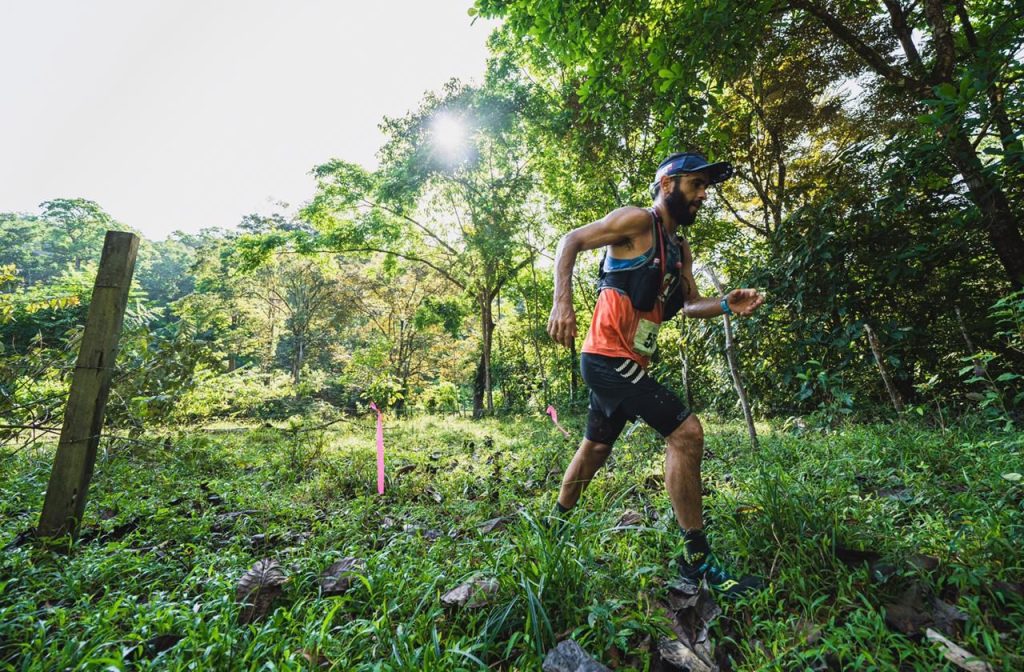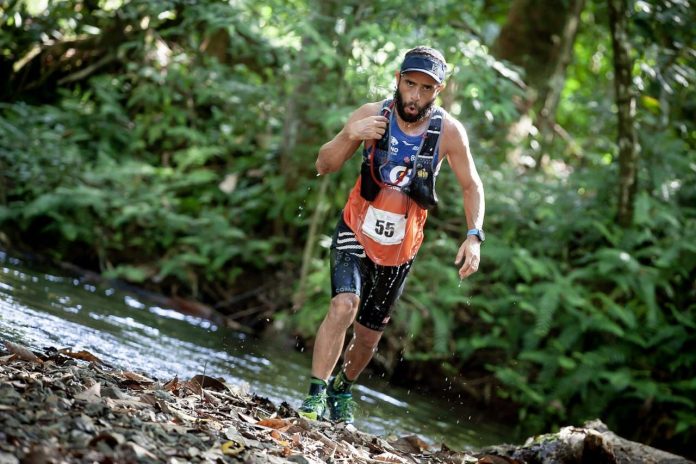César Lizano represented Costa Rica at the 2012 London Olympics marathon. In addition, he has run 18 other marathons, including Chicago, New York and, just last month, Boston; he has represented Costa Rica at three world half marathon championships; and more recently, he has conquered mountain races, managing to join the top finishers of some of the most demanding trail races in Costa Rica.
But when you ask Cesar about his career, he wants to go back to the beginning. To the moment when, at the age of 13, he was among the top finishers in a cross-country race without any preparation. His talent surprised his teachers and athletic coaches in San Rafael Abajo de Desamparados, where he still lives. Nobody was prepared for what they saw, to the point that his physical education teacher forgot the date of the next competition and César could not participate in the national games that year.
“These stages formed what I am now and what I was,” says César, talking about his achievements. He says that from that first race, he went on to the National Games, Student Games, and the Central American Games, the events that led him into what is now his motivation, his lifestyle and his work.
“The process of National Games was quite beautiful because they were tests that challenged you,” says César about those youth competitions. The first one he participated in was Cartago 1998. “My last games were Nicoya 2002, and after that I started road running: first 10 km, then 21 km, taking on longer distances, and in 2008 I ran my first marathon…I saw the Beijing Olympic Games, and I said, ‘For the next games, I have to be there.'”
And so he was. He even came within 8 seconds of qualifying again for the Rio 2016 Olympics.
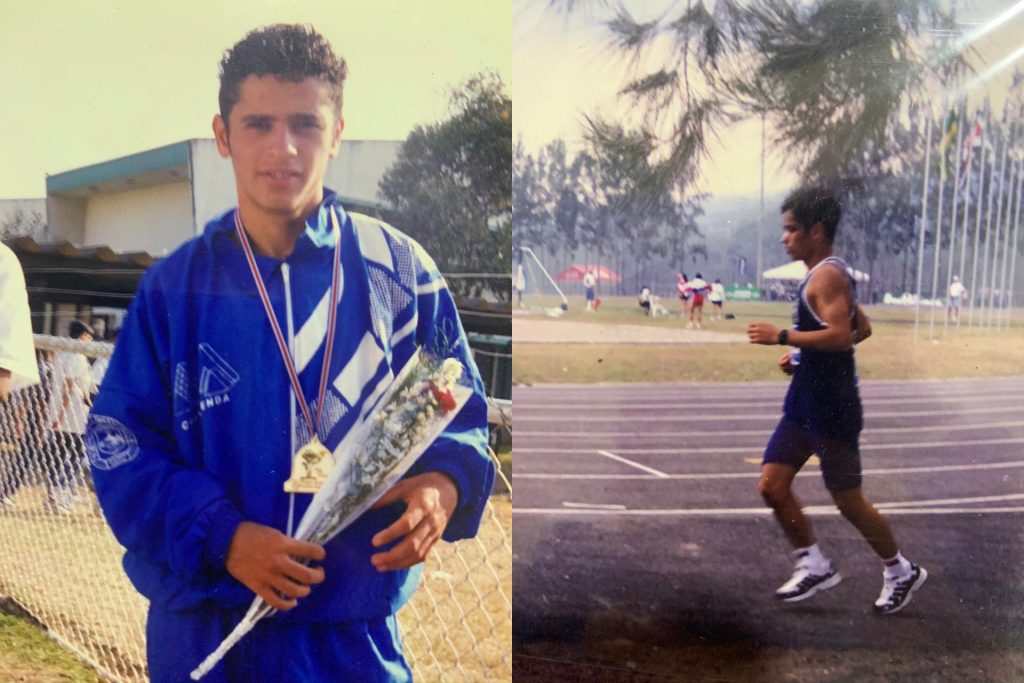
He emerged from this initial stage of his life and career with a nickname: “El Tigre.” But they didn’t call him Tiger because of his personality, or his attitude on the track, or his way of training. Rather, the first coach who taught him the way forward, Hugo Hernández, called all his pupils “Tiger.” César and his fans decided to hold onto the nickname.
At 39, César is an athletics coach with degrees from the National University (UNA). He also ha sLevel 2 training from the International Association of Athletics Federations (IAAF , now known as World Athletics).
All this training has helped him prepare for the competitions.
“Knowing the whole organism, how the heart works, the muscles, the diet, the psychological part, helps orient you,” he says. “You perceive different workouts in a different way, and it has helped me to communicate what an athlete can do.”
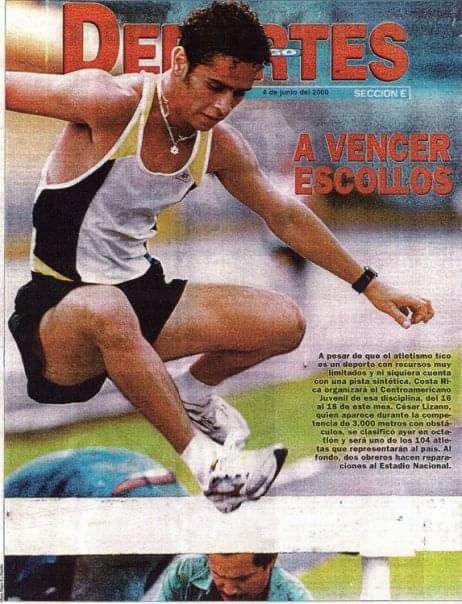
The pandemic allowed Cesar to return with greater intensity to his roots—cross country racing—by competing in high-level mountaineering races.
“It has gone well for me because I enjoy it,” says César. “In the mountains [winning] does not stress me out, although there is always a hunger to win or be among the first, but I enjoy it in another way.”
In addition to mountain races of 21, 30 and 50 km, in the pandemic years he’s run The Coastal Challenge, a demanding race of six stages on six consecutive days; finished first in the 2020 Adventure Run (160 Km); and finished third in in the 2021 Expedition Run (236 Km).
“[Mountain races] are a complement to what I have practiced for many years. They provide a lot of strength, endurance, mental work,” says César. “I really like running on trails, mountains, jumping logs, jumping stones.”
Cesar coaches two athletic teams, the Lizano Running Team and the Roadrunners. Part of his job is to help the people he manages to find a taste for running and to set goals.
“It happens to me a lot with people who start in the group and start from scratch and realize that they were able to run 500 meters. They tell me, ‘I didn’t know I could run 500m,’ and I tell them ‘Look, you already ran it!'”
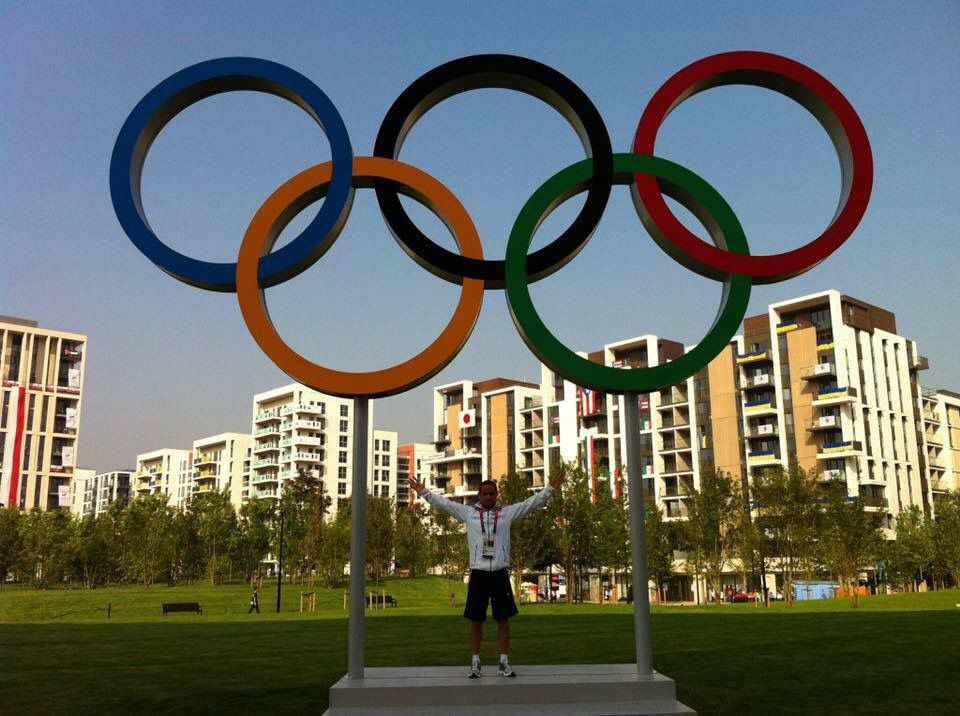
Advice from an expert
Where is your favorite place in Costa Rica to run, just for fun?
There is a very very rich area for a runner in every sense because it is flat, it has mountains, it has a much more pleasant, cool temperature: that’s Cartago. There you find something for everyone. It is one of the areas that I like the most for running.
You can go up Irazú, or towards Turrialba. Or you stay in the center and can run flat terrain towards Tobosi, the Guarco area.
It is my favorite place. I try to go two or three times a week.
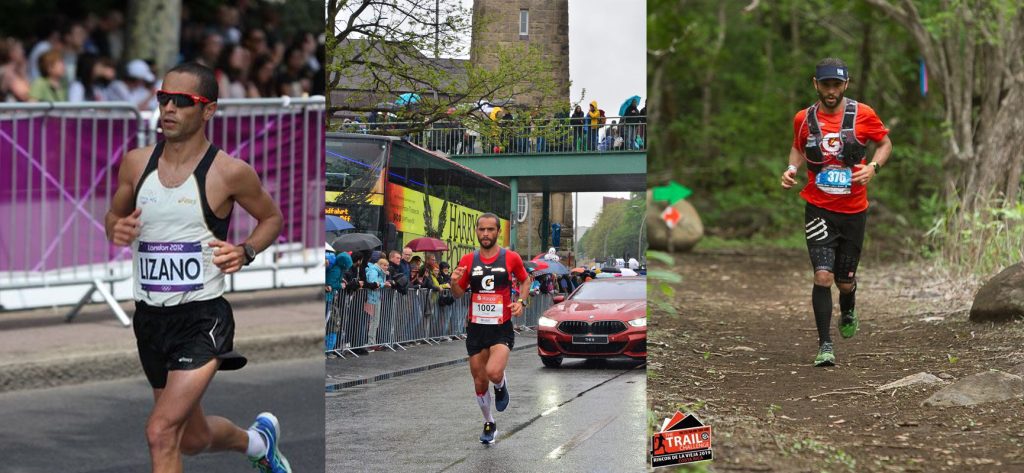
What is your favorite place in Costa Rica to train?
It depends a lot on the type of training that is being done. If you want to be a fast short-distance runner, my favorite place is any 400m running track.
If you want to be a strong mountain runner, I really like the Cartago area as well as towards Prusia, towards San Juan de Chicuá. There is a place called Cabeza de Vaca that is quite challenging.
To train for hot events, I like the Rodeo, from Ciudad Colón on in: there are mountains, trails and a lot of heat, so I really like to train there when I’m preparing for to hot events.
What place do you recommend for those just starting to train for races and marathons? For mountain races?
As a coach I like the athlete to have many alternatives and varied training. To begin a training process, pick a place that is very safe, very comfortable, is La Sabana. You can run circuits in a safe way because there are no cars, no one is going to interrupt you, you can run on grass, on the street, on the road. La Sabana would be a good place for those who live in central Costa Rica.
Find places that are very safe, very quiet.
When you are starting out you don’t yet know the ins and outs of running in the street. Normally you should run on the left side, facing [oncoming traffic]. And since there are no sidewalks in Costa Rica, I prefer that people look for a safe place—Parque de la Paz, La Sabana, the TEC in Cartago—places where there is not so much traffic, to avoid accidents and so that one feels a lot calmer.
To start training for mountain running, there are many places. Rodeo in Ciudad Colón, where there are gravel and mountain roads, trails. On the Rancho Redondo side of Coronado, between Coronado and Cartago, there is a 3km trail that is very practical to start with. It’s high, more than 2000 meters above sea level, so it is colder and breathing is an effort, but it is also an opportunity to train in a healthy, cooler environment.
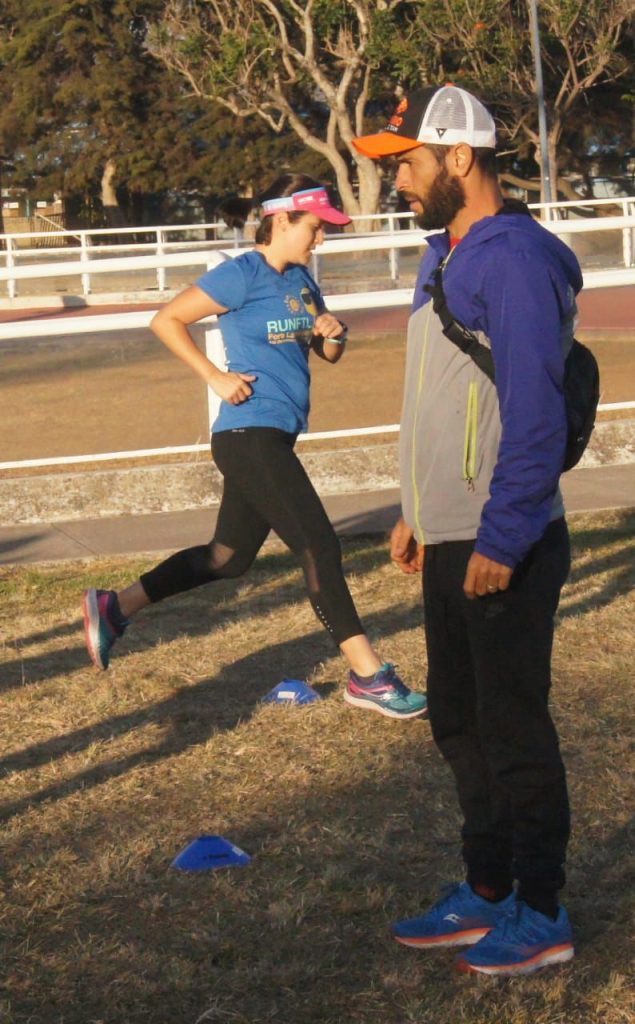
What competition do you recommend for those who want to start racing in Costa Rica? For trail running?
There’s a beautiful race in Cartago: La Candelaria. It starts in La Lima, passes through the center of Cartago, and ends in Paraíso. It’s a 10km race, one of the best attended in Costa Rica.
During the pandemic there are not many events, but when there were, these included the San Silvestre race at the end of the year, with 5 km and 10.4 km options. This is in the center, in La Sabana. The 10K is a little more challenging.
If you focus on a half-marathon, the Sele race that organized by the Football Federation tis very fast and relatively simple in terms of the route. It also has a 10 km option.
For mountain races, the Rincón de la Vieja race is very beautiful. It is an event that takes place every year in May, with a 5K option.
But for trail running there are many events. There is a series called Ecogreen that has five to six events in different areas, from 5 to 10K. Beginners can do these events perfectly well, and even those that are challenging are not as demanding as a 21K.
I recommend looking for event organizers like Ecogreen, who are specialists. They’re the ones I know best, but there are several organizers of mountain races.
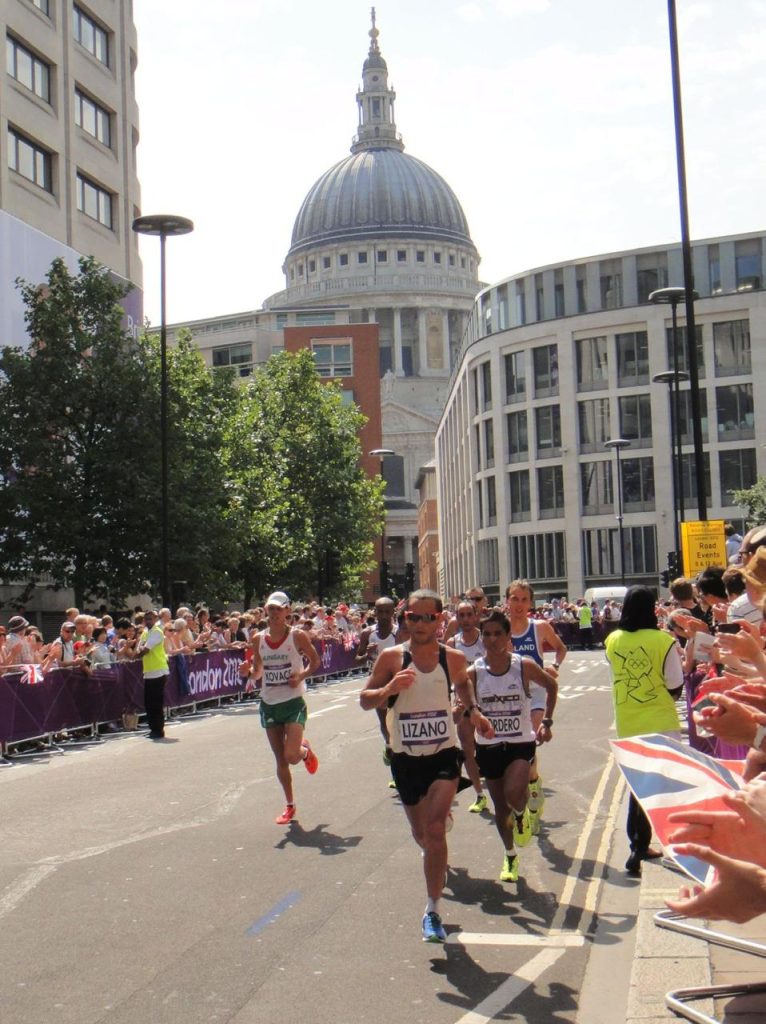
What tips do you have for those who want to practice this sport?
First, set a clear personal goal.
Then, have a medical checkup to see if you’re ready to start a marathon process, or just to start running. How’s my heart? How is my body? That is important and we cannot skip it.
Then, get to work with someone who provides adequate planning according to the objectives you are looking for.
Have a good diet.
Understand that this is a process of great perseverance, because if I train one day a week and rest six, then I will not see a benefit. If I say I am going to start training three days and those three days I am fulfilling them with military precision, obviously I’ll see the benefits. That is why it is important to have planning and a guide, because all those details of organization and improvements are going to be given to you.
